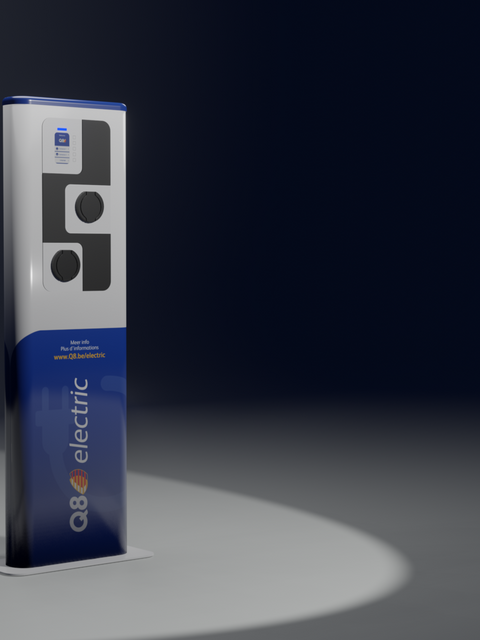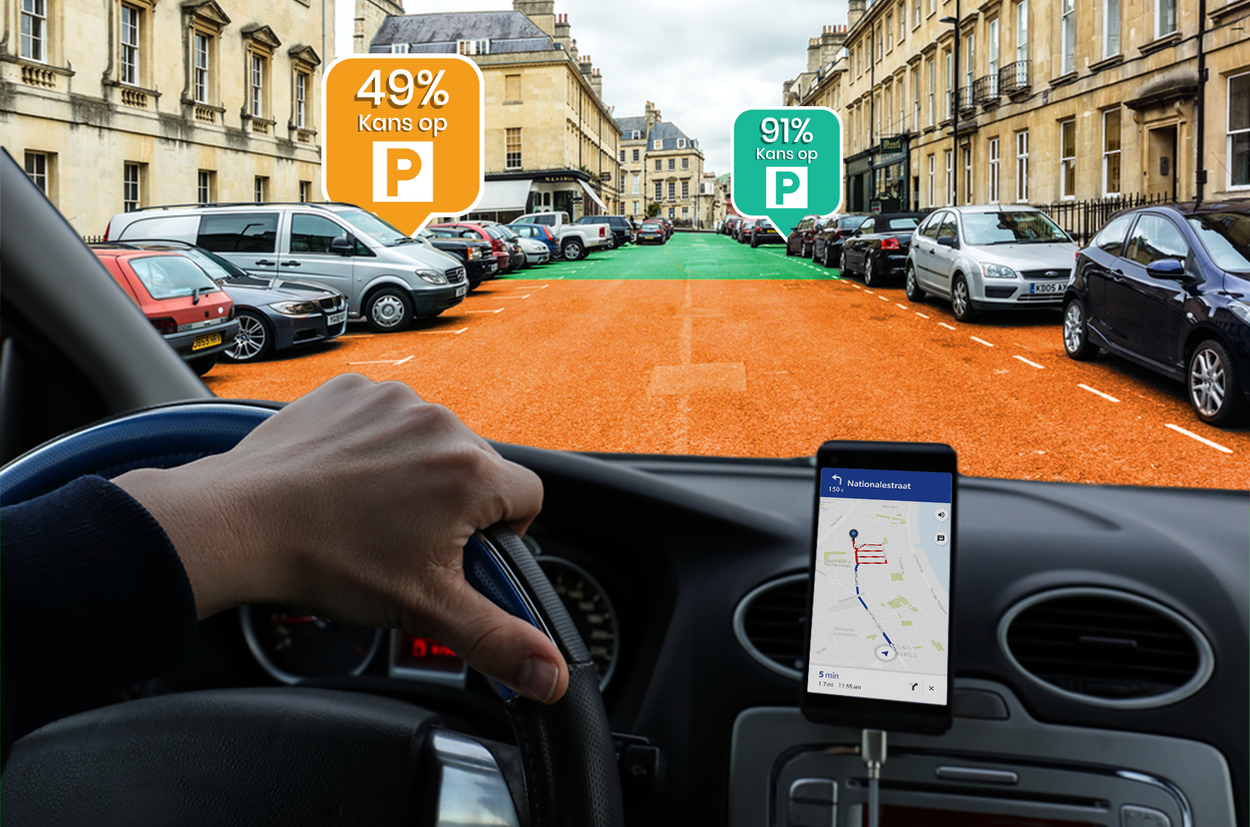What will the mobility of the future look like? And how can an oil company like Q8 adapt to it? To prepare for a world where roadside fuel stations are becoming less important, TomorrowLab helped Q8 to see clearer into the future.

Electric cars, renewable energy, the sharing economy: it is clear that mobility is changing fast. For Q8, it is critical to prepare for this new reality. In 2016, Q8 invited TomorrowLab to help them explore the future of the company.
“Although Q8 also has a number of non-fuel activities, the company was still a traditional oil company,” says Ehsan Karimi Rad, Strategy & Innovation consultant at TomorrowLab. “Q8 wanted to know how it could compete better against existing and upcoming energy providers, and whether its current strategy was robust enough to meet the mobility needs of the future.”
“Q8 was not only looking for an innovation partner who could help us roll out a strategy for the future, but also someone who could guide us through the next steps, the implementation of our strategy,” says Bert Gillis, Retail Director at Q8. “This is exactly what we found in TomorrowLab.”
Q8 wanted to know whether its current strategy was robust enough to meet the mobility needs of the future.
Future scenarios
Q8 realized that you can never predict the future, but that shouldn’t keep you from exploring what is possible. TomorrowLab guided Q8 through a future exploration exercise towards 2035 and beyond, in order to help the organisation understand where it is headed.
Scenario planning is a way to deal with the uncertainties of the future. In the story of Q8, two uncertainties were critical: climate change on the one hand and the extent to which regulations will promote an inclusive society on the other hand. By plotting these uncertainties on two axes, TomorrowLab was able to identify four potential scenarios.
“We deliberately presented four extreme future scenarios, in order to stimulate people to think about them,” says Ehsan Karimi Rad. “We looked at how the current Q8 strategy would perform in those four scenarios. Unfortunately, Q8 scored insufficiently for three of the four worlds.”
From energy provider to mobility player
By means of multiple strategic sessions TomorrowLab helped Q8 to discover how the future scenario planning could result in a more robust strategy and roadmap. More than a fuel provider, the new Q8 mission was described as providing ‘sustainable mobility services for every customer journey.’
“Thanks to TomorrowLab, Q8 has a much better idea of the direction it needs to take,” says Bert Gillis. “We now want to focus on becoming a sustainable mobility player. And the first experiments in the framework of that strategy have already been launched.”
A mixed innovation team of internal and external experts was tasked to set up innovation experiments and to explore the business opportunities beyond the roadside gas station. This resulted in a wide range of innovation projects, including Q8 support to the car sharing platform SnappCar and a new on-demand roadside assistance service.
“We help Q8 to develop complementary mobility services,” says Dorien Piessens, Strategy & Innovation consultant at TomorrowLab. “We guide Q8 through the implementation of their innovation strategy and we support them during the different stages of their innovation process. It’s all about hatching, developing and executing ideas.”
TomorrowLab helps Q8 to develop an entire ecosystem of complementary mobility services.
Supporting the innovation process
Innovation is not just about generating new ideas. In order to make innovation work, processes need to be set up and these processes need to become ingrained in the company. In addition to rolling out innovation projects, TomorrowLab also helped Q8 to develop processes for idea management, assigning innovation team roles, idea development, experimenting and testing business ideas, and much more.
“A big plus of TomorrowLab is that they manage to get everyone in the organisation on board and create a culture of innovation,” says Bert Gillis. “We have definitely succeeded in changing the mindset of the people on the work floor, our management and our stakeholders.”
TomorrowLab also helped Q8 to set up a governance system to evaluate the progress of innovation projects at regular intervals. “An innovation roadmap is not set in stone, but needs to be agile,” says Ehsan Karimi Rad. “Therefore, it’s important to frequently reflect on trends, the market, its users and much more. Then, we need to see how these trends affect the innovation roadmap and strategy.”

One of the biggest advantages of working with TomorrowLab is the outside-in approach. By making use of its wide network of external experts, TomorrowLab brings knowledge into the Q8 organisation.
“We don’t claim to know everything,” says Dorien Piessens. “Instead, we help the organisation to develop the right skills and innovation mindset, and we encourage them to get out of their comfort zone.”

Your employees at the driver's seat for innovation
In order to innovate successfully within your company, it is crucial that employees are assigned an involved role. In a previous blog, we underlined the importance of an organisational network analysis (ONA). An analysis in which we identify different key network roles. But what exactly do those roles look like? And why are they important for the success rate of your business innovation?

Innovation excellence program
Embed innovation in your company! Through a tailor-made program you will be able to anchor innovation in your strategy, way of working, organisational structure, culture and ecosystem.
Foresight
In these volatile, uncertain, complex and ambiguous times, it is often difficult to predict or forecast the future. At the same time, the need to understand the future has never been greater.Foresight exercises, such as scenarioplanning, enable companies to deal proactively with these uncertainties and map out different plausible futures. Foresight plays an important role in challenging organisations to step out of their comfort zone in order to make the right transformation decisions.TomorrowLab has extensive expertise in developing well-founded and plausible future scenarios in many sectors. We guide organisations in the use of future scenarios for strategic and innovation challenges. The result? You are ready for tomorrow and will make well-considered decisions about the future. Here you can find out more on our approach for scenarioplanning and future foresight or watch our video about scenario planning.


